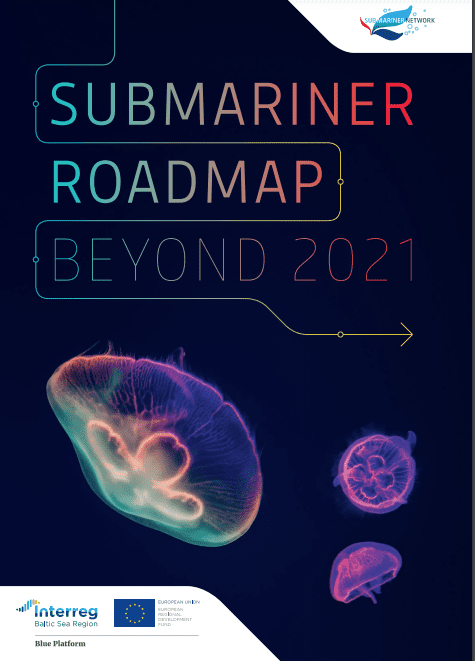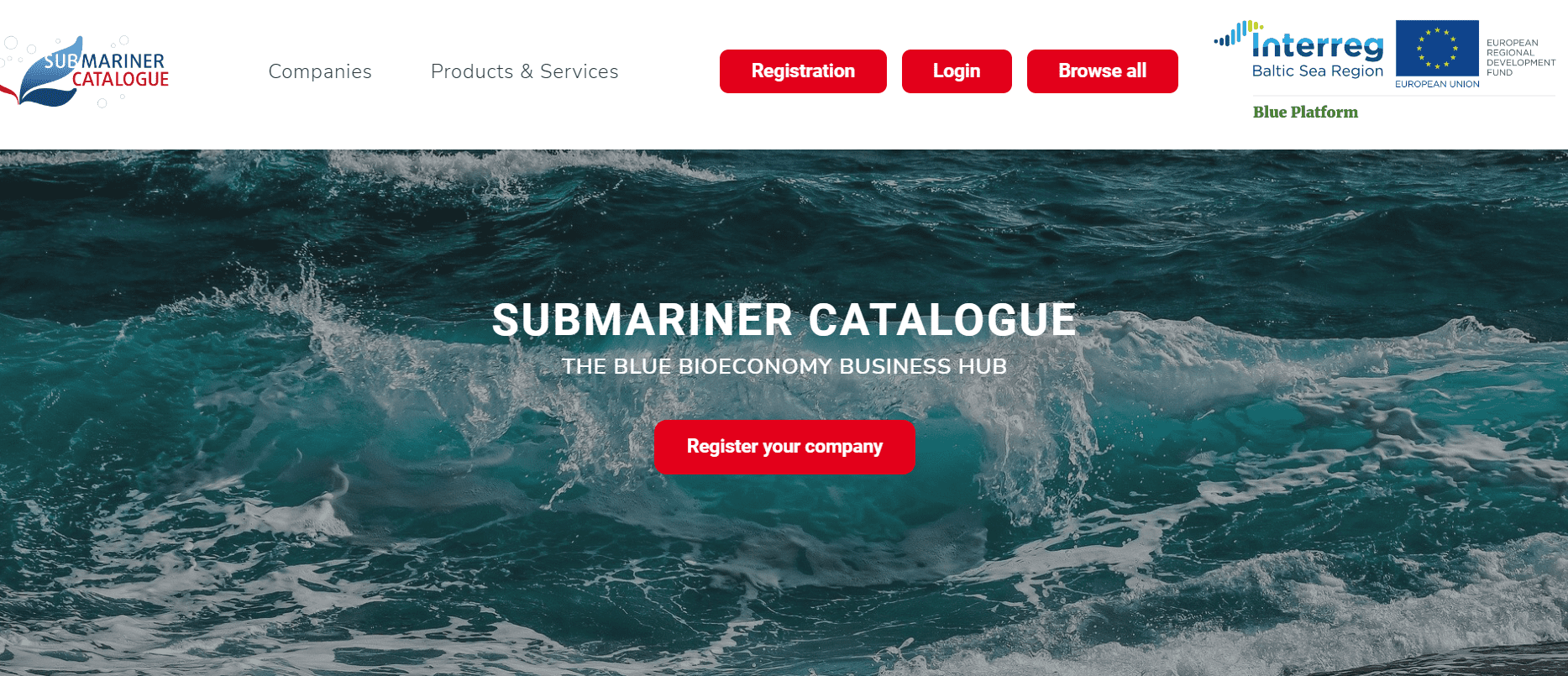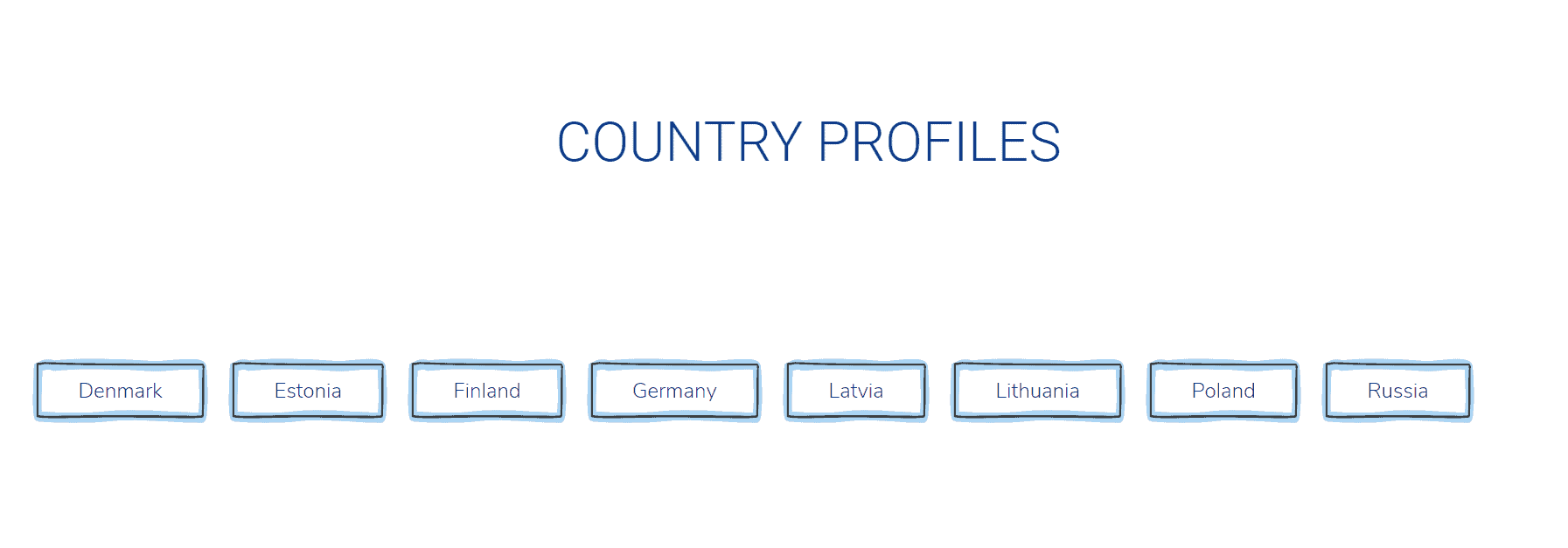Blue Platform
Advancing the Bioeconomy in the Baltic Sea: Blue Platform
The blue bioeconomy covers activities that are based on the sustainable use of renewable aquatic resources, such as aquaculture, mussel and algae farming or marine biotechnology. Such activities are crucial to achieving blue growth, which meaning that maritime sectors are both environmentally and economically sustainable. Luckily, many actors across the Baltic Sea region are already very active in these sectors, and a wealth of past and on-going blue bioeconomy projects and products is available.
Increasing awareness and capacity
Blue Platform increases the awareness of existing blue bioeconomy knowledge in the Baltic, and focuses on streamlining activities both now and in the future. The platform partners develop a manual with common standards; policy papers on how funding and legislation could be better aligned; and develop a Blue Platform Roadmap 2020. The project website features more than 25 past and on-going transnational products developed by more than 10 projects database of baltic blue bioeconomy activities, projects, products and actors and is continuously updated: For example, a natural sunscreen extracted from organic seaweed produced by a Danish company; a Lithuanian start-up using Baltic Sea mollusk shells to prepare artificial bone tissue; a Swedish municipality developing a new type of fish feed from seaweed washed ashore.
Become involved with the Blue Platform!
The Blue Platform is leading the Baltic Blue Bioeconomy Community through a dynamic website and web-based products. Follow #BluePlatform on social media or visit the website.
Projects represented in the platform
- Interreg Baltic Sea Region: ALLIANCE | Baltic Blue Growth | BalticLINes | Smart Blue Regions | Go LNG | BalticRIM
- Interreg Central Baltic: Plan4Blue
- Interreg South Baltic: InnoAquaTech
- Interreg North Sea Region: BIOCAS
- BONUS: Blue WEBS
- H2020: MUSES
- EMFF: Baltic SCOPE | PanBaltic SCOPE
Budgets
in numbers
-
1.05MillionTotal
-
0.79MillionErdf
-
0.05MillionEni + Russia
-
0.00MillionNorway
Achievements
Putting bioeconomy into focus
The Blue Platform raised the awareness of public and private decision-makers about the growing importance of the new blue bioeconomy sector in the Baltic Sea region. It brought together the results of more than a dozen of Interreg and Horizon2020 projects and summed them up in the web-based information hub. By analysing pilot results from several projects, the platform provided stronger evidence on the usefulness of the developed solutions in new, for the region, topics.
The platform partners clustered the information about this new sector of blue bioeconomy by topics and countries. Through numerous workshops, policy-makers and public agencies, companies and researchers learned about practical achievements in mussel and algae cultivation, sustainable aquaculture, blue biotechnology, and multi-use of marine space, which in 2013 were merely theoretical concepts. For example, more public authorities and companies learned that blue mussels and various native algae species could be cultivated in the Baltic Sea Proper, an area with lower salinity levels, how local short product value chains could be developed with input from these resources which show good market potential (for feed, food, cosmetics), low-trophic aquaculture and fishery offered cost-effective ways of nutrient removal, where needed, and recirculating aquaculture produced high value products sold at regional markets.
New Mussel working group!
In addition, the platform established working groups to actively cooperation and promote innovative and sustainable uses of marine resources. They are coordinated by the Submariner Network. The cooperation established within the Mussel working group allowed for a fast and successful application for a transnational investment under the new Interregional Innovation Investment Stream, which brought EUR 7.3 million into the mussel cultivation market within the Baltic Sea region.
Mapping bioeconomy actors
The platform also mapped public and private actors involved in new marine uses: almost 3,000 individuals in the Baltic Sea region working in more than 1,700 different institutions. Out of them, more than 650 companies worked within the blue bioeconomy throughout the Baltic Sea region. These were companies, for example, from traditional fish aquaculture to working with new uses of algae and blue biotechnology. In addition, the companies got the opportunity to promote themselves as well as the products and services they produced through the blue bioeconomy business hub developed by the platform.
Work hand in hand with EU Strategy
The partners of the platform, the coordinators of the EUSBSR policy areas Bioeconomy and Innovation as well as the members of the Submariner Network developed the roadmap to advancing the blue bioeconomy in the region beyond 2021. This roadmap includes four actions: getting pilots to the next level, involving companies of all sizes, strengthening ‘The Blue on Land’, and interlinking Baltic with EU wide communities of practice. Already by May 2022, more than 15 new partnerships started to implement parts of the actions. Almost half of them were successful to secure funding, while others were pending. The future of the blue bioeconomy development seems to be in skilful hands of the platform partners and their supporters.
Outputs
Blue bioeconomy roadmap beyond 2021

Actors map active in blue bioeconomy

Blue bioeconomy business hub

Country profiles on blue bioeconomy with good practices

Position paper on aquaculture legislation in the Baltic Sea region
Project Stories
-
03.08.2021
Low-carbon mobility solutions to green our future
In line with the EU’s climate neutrality target, our Programme supported several initiatives tackling the diverse challenges faced by the Baltic Sea region’s transport sector. We united our efforts to make our region more accessible, better connected and less polluted, ultimately improving the overall mobility experience in the area while protecting the environment. Read how Interreg Go LNG, BSR electric and Sohjoa Baltic have contributed to green mobility and innovation in transport sectors in the region.Read full story -
11.05.2021
How water-smart ideas make the Baltic Sea region thrive
From a rich marine life to beautiful vacation places, the Baltic Sea offers numerous resources that can be exploited to boost the economic growth of the region without harming its ecosystem. Interreg Baltic Sea Region funded multiple cooperation projects that have contributed to a sustainable and innovative blue economy. Good and successful examples of smart blue initiatives include ALLIANCE, Baltic Blue Growth, Capacity4MSP and Blue Platform.Read full story -
30.09.2020
Great project pictures that tell great Interreg stories!
More than seventy pictures competed in the Interreg Baltic Sea Region photo competition. Which projects were the best in illustrating transnational cooperation, grasping the essence of a project and its result, and presenting the 30th anniversary of Interreg? Congratulations to the teams of BalticRIM, RESQU2, Baltic Game Industry, EcoDesign Circle and GoSmart BSR!Read full story -
15.07.2019
Coherent planning of shipping and offshore energy across borders with Baltic LINes
The Baltic Sea experiences an increasing demand for coherent spatial planning in order to bring shipping routes and offshore renewable energy infrastructure together. Project partners from nine countries worked across borders to tackle the challenge of scarce space available and competing economic interests of the different sectors active in and around the Baltic Sea in the Interreg project Baltic LINes.Read full story -
13.06.2018
Jointly creating sustainable products from a shared sea
Red algae growing in the Baltic Sea are the special feature of facial creams in the Estonian cosmetics line Berrichi. But what’s more, it is the first product developed with the support of the Interreg-funded expert network ALLIANCE. The ALLIANCE is a European cooperation project and a flagship of the EU Strategy of the Baltic Sea Region. It brings together blue biotechnology actors from around the Baltic Sea to create new products and services.Read full story -
13.03.2018
Helping spatial planners see the cultural heritage of the sea
The Interreg project BalticRIM integrates maritime cultural heritage of the Baltic Sea into maritime spatial plans to safeguard it for the future. Matthias Maluck from the State Archaeological Department of Schleswig-Holstein explains what maritime cultural heritage is and why and how it should be preserved. BalticRIM frames cultural heritage of individual countries in a transnational perspective and thus delivers territorial cohesion.Read full story -
23.02.2018
Think local, act global with Interreg! (Video)
Along with introducing strict EU environmental regulations to counteract air pollution in harbour cities, the maritime and transport industries in the Baltic Sea region turn towards alternative fuel and energy sources to reduce harmful emissions. The Interreg project Go LNG explores the demand and accessibility of Liquefied Natural Gas (LNG) as one of alternative fuels that leads to cleaner shipping.Read full story -
20.12.2016
Making legal requirement accessible to establish an environmentally friendly aquaculture in the baltic sea
Establishing environmentally friendly mussel aquaculture requires to follow necessary legal obligations in the EU. The project Baltic Blue Growth is making a concerted effort in explaining these requirements to its projects partners and others who are interested in pushing forward mussel aquaculture in the Baltic Sea.Read full story
Partners
Finnish Envronment Institute
- TownHelsinki
- RegionHelsinki-Uusimaa
- CountryFinland
- RepresentativeRiku Varjopuro
- Phone
- E-Mail
- Web
Submariner Network for Blue Growth EEIG
- TownBerlin
- RegionBerlin
- CountryGermany
- RepresentativeEfthalia Arvaniti
- Phone
- E-Mail
- Web
Swedish Board of Agriculture
- TownJönköping
- RegionJönköpings län
- CountrySweden
- RepresentativeHans-Olof Stålgren
- Phone
- E-Mail
- Web
University of Gdansk
- TownGdansk
- RegionTrójmiejski
- CountryPoland
- RepresentativeKatarzyna Palinska
- Phone
- E-Mail
- Web
Latvian Institute of Aquatic Ecology, Daugavpils University Agency
- TownRiga
- RegionRīga
- CountryLatvia
- RepresentativeAnda Ikauniece
- Phone
- E-Mail
- Web
Klaipeda Science and Technology Park
- TownKlaipėda
- RegionKlaipėdos apskritis
- CountryLithuania
- RepresentativeAndrius Sutnikas
- Phone
- E-Mail
- Web
University of Tartu
- TownTartu
- RegionKesk-Eesti
- CountryEstonia
- RepresentativeRobert Aps
- Phone
- E-Mail
- Web
Guldborgsund kommune
- TownNYKØBING FALSTER
- RegionVest- og Sydsjælland
- CountryDenmark
- RepresentativeMette Jørgensen
- Phone
- E-Mail
- Web
Kaliningrad State Technical University
- TownKaliningrad
- RegionKaliningrad Oblast
- Country
- RepresentativeSergey Shibaev
- Phone
- E-Mail
- Web
-
Project managerAnne-Mari LuhtanenFinnish Envrionment Institute
-
Legal representativePaula KankaanpääFinnish Envronment Institute
-
Financial managerMiia RiihimäkiFinnish Environment Institute
-
Communication managerAnne KierkegaardSUBMARINER




